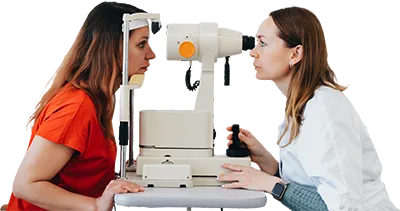
In today's digital-first world, patients turn to Google and social media before choosing a plastic surgeon. Whether it's for a rhinoplasty or a tummy tuck, decisions start online. This makes digital marketing not just an option but a necessity for any plastic surgery clinic looking to thrive. Traditional methods like newspaper ads and radio spots no longer provide the same level of return. In contrast, digital marketing offers hyper-personalized messaging, real-time analytics, and the ability to connect with patients at every stage of their journey.
Why Digital Marketing Is Crucial for Plastic Surgeons
The aesthetics industry thrives on trust and transformation. Digital marketing empowers surgeons to showcase their work, share their expertise, and attract the right type of patient. Moreover, it offers detailed analytics to track every penny spent, ensuring the best possible ROI. A well-crafted healthcare marketing strategy also enhances a practice's credibility by creating consistent messaging, authority content, and an engaging online experience.
Key Marketing Strategies to Get More Patients
Search Engine Optimization (SEO)
SEO ensures your clinic ranks when potential patients search for treatments like "liposuction near me" or "botox in [city]." It involves keyword-optimized content, local SEO (Google My Business), on-page enhancements, and authoritative backlinks. Schema markup and page speed optimization also play key roles.
Social Media Marketing
Instagram, Facebook, and TikTok are goldmines for visual storytelling. Post-before-and-after photos, educational reels, and success stories. Social media builds brand personality, patient trust, and long-term loyalty.
Email Marketing
Email is perfect for staying connected with existing and potential patients. Share pre-and post-op care tips, seasonal offers, clinic news, and personalized messages. Automate your campaigns for better retention.
Pay-Per-Click (PPC) Advertising
Google Ads and Meta Ads help target high-intent patients. You can boost immediate lead flow with ad extensions, A/B testing, retargeting, and compelling CTAs. This is a great strategy for driving traffic when launching a new service or offer.
Video Marketing
Videos help humanize your brand and build emotional connections. Create content that answers common patient questions, showcases procedures, and tells real patient stories. Use Instagram Reels, YouTube, and Shorts.
Reputation Management
Your healthcare online reputation defines your trust factor. Encourage 5-star reviews, address negative feedback professionally, and promulgate testimonials on your website and social media. Platforms like RealSelf and Healthgrades are critical. 73% of patients are turning to online reviews to help them make this important decision.
Content Marketing
Write blogs, FAQs, ebooks, and guides that answer real patient concerns. Optimize for long-tail keywords like "what to expect after a tummy tuck" or "rhinoplasty recovery tips." Quality content boosts SEO and builds authority.
Best Platforms for Plastic Surgery Marketing
Instagram:
Facebook
YouTube:
Case Studies: Real Growth From Real Strategies
Client 1: From 12 to 270 Leads/Month
This client initially generated just 12 leads/month. We implemented:
- Local SEO with City based keywords
- Google Ads with optimzed Landing Page
- Facebook and Instagram retargetting ads
Result: 270+ leads per month in 6 months and over 60% reduction in cost per lead.
Client 2 (Bangalore): From 131 to 320+ Leads/Month
A Bangalore-based clinic aimed to double its leads. We introduced:
- Instagram Reels with Doctor Tips
- Meta Ads targeting women 25–45
- CRM automation for faster response
Result: 320+ monthly leads and a 40% boost in conversions.
Benefits of Digital Marketing for Plastic Surgeons
Increased Reach and Visibility
Digital marketing for plastic surgery makes your clinic discoverable to people searching for plastic surgery in your area or for specific treatments.
Targeted Advertising
Reach the right audience with filters for age, gender, location, and interests, and maximize your ad spend efficiency.
Improved Brand Awareness
Consistent messaging and valuable content position your clinic as a trustworthy authority.
Higher Conversion Rates
Strategically designed funnels convert leads into paying patients through retargeting, CTAs, and social proof.
Cost-Effective Marketing
Unlike traditional methods, digital marketing allows for budget flexibility, better ROI tracking, and continuous optimization.
FAQs About Digital Marketing for Plastic Surgeons
Q1. How long does it take to see results from digital marketing for plastic surgery?
SEO may take 3–6 months, while PPC and social media ads can instantly bring leads.
Q2. What platforms work best for plastic surgeons?
Instagram (visual storytelling), Google Ads (intent-based searches), and YouTube (trust-building content).
Q3. Is SEO still important if I'm running ads?
Absolutely. SEO creates long-term organic growth, reducing dependence on paid media.
Q4. How much should a plastic surgeon invest in digital marketing?
Typically, 10–15% of your monthly revenue. High-growth clinics may invest more for a faster scale.
Q5. How do I measure digital marketing success?
Track metrics like qualified leads, conversion rate, ROAS (Return on Ad Spend), and cost per lead.
Conclusion
Digital marketing is a game-changer for plastic surgery clinics looking to attract more patients and grow sustainably. It helps you connect with potential patients at the right time, on the right platforms, with the right message. Whether you're just starting or looking to scale further, the right strategy can transform your clinic just like it did for our successful clients.
Ready to take your plastic surgery practice to the next level? Read the HealthcareDMS blog on "How Can Plastic Surgeons Build a Strong Online Presence and Reputation in 2025?" and learn how we can help you build a custom plastic surgery marketing strategy tailored to your goals.












